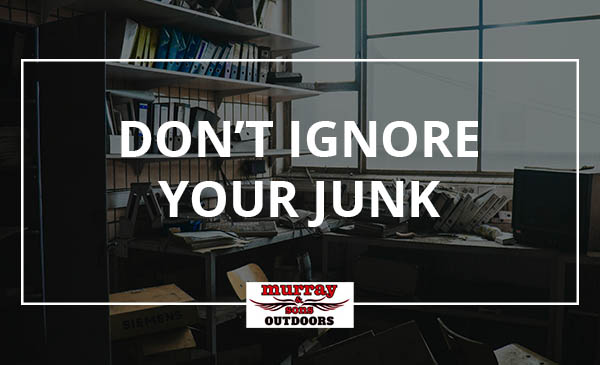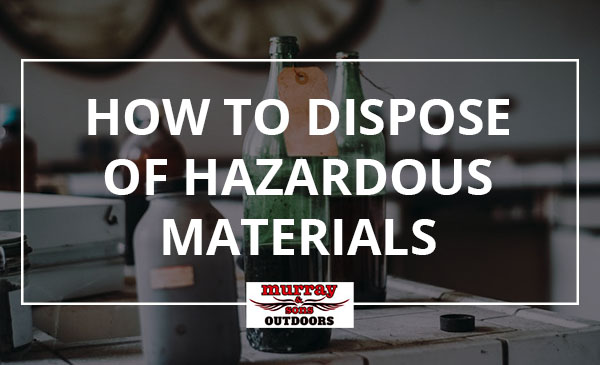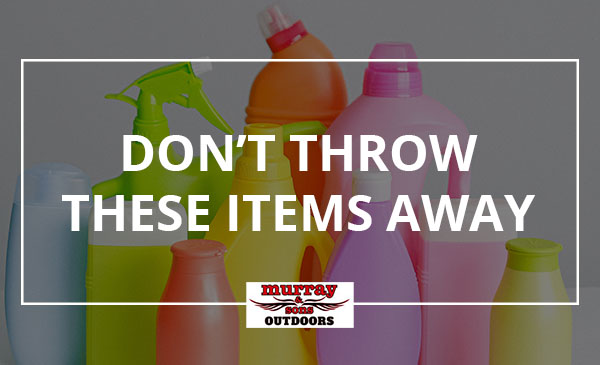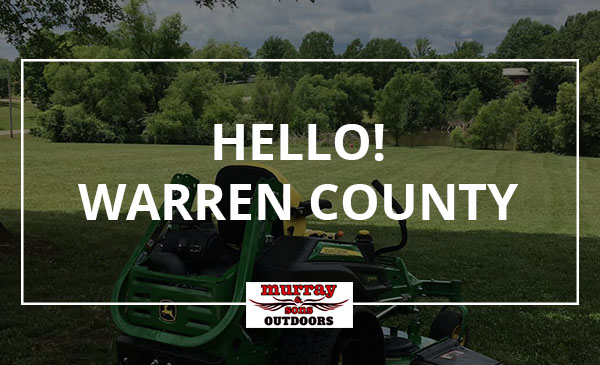
How to Dispose of Household Junk
November 17, 2022
Don’t Ignore Your Junk
January 18, 2023Hazardous materials are any items that can cause physical harm to you or your family or damage the environment. Hazardous materials include household chemicals, batteries, car fluids, paint thinner, pesticides and more. The Environmental Protection Agency (EPA) recommends that all hazardous waste should be properly disposed of by following these steps. These items do not belong in any of our dumpster rentals!
Dispose of Hazardous Materials
Hazardous materials are any items that can cause physical harm to you or your family or damage the environment.
Hazardous materials are any items that can cause physical harm to you or your family or damage the environment. They may be toxic, flammable or explosive, so you should always wear gloves and use caution when handling them.
- Toxins: This includes pesticides, herbicides, acids and organic solvents.
- Explosives: These include fireworks; smoke grenades; fireworks accessories (such as sparklers); flares; firecrackers and other novelty devices containing explosives (such as M-80s).
Keep hazardous materials in a safe place.
The first step to safely disposing of hazardous materials is keeping them in a safe place.
- Store chemicals away from food and drink, as they can cause serious harm if ingested or absorbed through skin.
- Keep all chemical containers closed when not in use, as they may rupture when exposed to air.
- Do not store flammable liquids near open flames; they will explode and cause burns if ignited by an open flame or spark (such as cigarette butts).
Call your local waste facility to find out what options are available for proper disposal of items.
- Call your local waste facility. If you have hazardous materials, call the number listed on their website and ask them if they accept these materials. They may also have information about what options are available for proper disposal of items such as household chemicals or paint cans (if they’re not too old).
- Ask if there is a pickup schedule at the facility; this will help you know when it’s best to take your item in for disposal. If you can’t find that information online, ask one of their employees so that you can schedule an appointment at the right time before trash days start again!
- Ask about fees for hazardous materials; some facilities charge per pound or gallon depending on how much was used or how dangerous it may be in case something leaks during transport from point A -> B -> C -> D -> E>. You might want to consider hiring someone who knows what they’re doing before driving yourself over there because accidents sometimes happen…
Never dispose of hazardous materials down an outdoor drain, sink, or toilet.
Never dispose of hazardous materials down an outdoor drain, sink, or toilet. It is illegal to do so and could cause a flood or other damage.
Similarly, if you have a leaking gas container (for example, a leaky propane tank) it’s important not to let it explode! If a portable generator is being used outdoors and becomes hot enough that there is danger of the engine overheating, do not move it until this has cooled down; otherwise you risk damaging your home or injuring yourself!
Hazardous materials should always be disposed of properly.
Proper disposal of these materials is important because it protects the environment and public health.
How to dispose of hazardous materials:
- Place all household items in an approved container that has been labeled according to local regulations.
- Place all building materials in an approved container or other facility designed for this purpose.
Why it is important to dispose of the materials properly:
- Improperly handled waste can contaminate groundwater, soil, surface water sources and air quality by emitting contaminants into the environment without being captured or stored safely until they can be disposed of properly at a permitted facility (such as a transfer station).
Finally, remember that you should always be careful to dispose of hazardous materials properly. If you have any questions about how to dispose of these items safely, call your local waste facility or visit their website for more information on what options are available in your area.




